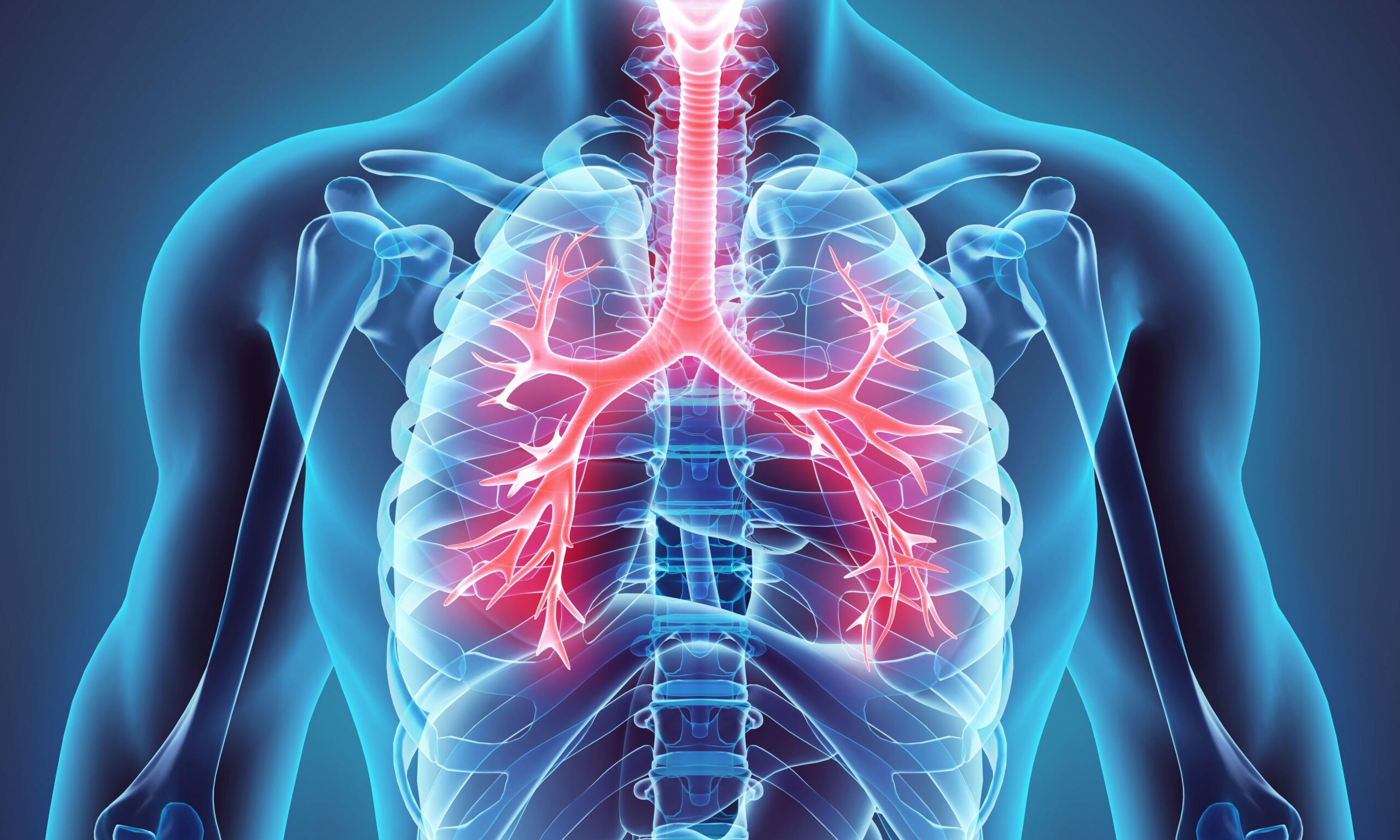Lung health is key to life. Problems with the respiratory system are often a prerequisite for the development of respiratory diseases. It is because of this fact that the respiratory system requires special attention. We need to take care of the health of our lungs and respiratory system especially during the season of viral infections.
Diseases such as chronic obstructive pulmonary disease and cystic fibrosis are associated with serious health risks and affect our overall health. In addition, they can contribute to the development of other conditions, such as cardiovascular disease.
Vitamin A and vitamin C, along with red ginseng and cordyceps, are natural remedies that may have beneficial effects on lung health. Their role in strengthening the immune system and supporting respiratory function makes them indispensable for maintaining optimal respiratory health.
Vitamin A – health for the lungs and alveoli
We most often associate vitamin A with eye health and good vision. Yet, this vitamin is not only important for the eyes – it is also important for the optimal functioning of the entire respiratory system.
Vitamin A belongs to the group of fat-soluble vitamins, which also include vitamins D, E and K. This specific group of vitamins is absorbed in the gastrointestinal tract and stored in the fatty tissues and lungs. It is important to keep in mind that vitamin A is not easily absorbed by the body, and excess amounts can be toxic. Vitamin A plays a critical role in lung health and alveoli, which are small air passages in the lungs involved in gas exchange. In addition, vitamin A maintains the cell structure and integrity of the lungs throughout life.
Research shows that vitamin A deficiency may be linked to serious problems such as bronchopulmonary dysplasia, a condition that affects the lungs and often affects premature babies. Even moderate vitamin A deficiency can increase the risk of respiratory infections and their recurrence. To maintain optimal lung health, it is important to take the right amount of vitamin A. Normal values for vitamin A are 15-60 mcg/dL or 0.52-2.09 μmol/L. A daily intake of 900 mcg of vitamin A for men and 700 mcg for women is recommended.
Vitamin A can also be found in a variety of food sources, such as sweet potatoes, carrots, and spinach. However, if you have difficulty getting the amount of vitamin A you need through food, vitamin A supplements can help keep your respiratory health in optimal condition.
Vitamin C and lung function
Vitamin C, also known as ascorbic acid, not only possesses powerful antioxidant properties, but is also essential for maintaining lung health. Vitamin C is a water-soluble vitamin and is not stored in the human body. This means that excess vitamin C is eliminated from the body and the risk of toxicity is minimal. However, this vitamin performs many important functions in the body, including the maintenance of lung function.
Research has shown that low vitamin C intake is associated with reduced lung function in both men and women. In addition, higher vitamin C levels are associated with improved lung function.
Vitamin C not only supports lung function but also reduces the risk of catching colds and shortens the duration of illness. To ensure adequate intake of this vitamin, daily doses are important. Levels lower than 2.5 milligrams per liter (mg/L) may signal vitamin C deficiency. Recommended daily doses are 90 mg for men and 75 mg for women.
Sources of vitamin C are a variety of foods such as citrus fruits, for example. If you find it difficult to get enough vitamin C from food, you can get it in the form of supplements. These can be easily absorbed by the body while reducing the risk of stomach irritations or diarrhea.
Red ginseng and immune support
Red ginseng is a plant with a thousand-year history in Asian folk medicine. Although traditionally the herb has been used for problems such as male infertility and erectile dysfunction, research highlights its potential as a powerful tool to support the respiratory system.
Red ginseng is a potent antiviral that can protect against a variety of infections, including influenza A. The plant stimulates the immune system and reduces lung inflammation associated with these viruses. Combined with vitamin C, red ginseng is a powerful tool for reducing lung inflammation and improving immune system activity. It provides support to the natural killer cells that are responsible for fighting flu infections.
This unique herb is an adaptogen, which means it helps the body cope with stress. Red ginseng strengthens the body’s resistance to stressors and improves the body’s defenses against viral attacks.
The dosage of red ginseng is not standardized, but daily doses of 200-600 mg are generally recommended to promote lung health. Its antiviral and anti-inflammatory properties make it a powerful ally for maintaining respiratory health, especially in infectious diseases.
Cordyceps and lung health
Cordyceps is part of a large family of over 400 different species of mushrooms, with Cordyceps Sinensis being one of the most studied species. This unique mushroom species has been used in ancient Chinese medicine for thousands of years. Its use has been linked to a wide range of ailments from lung, heart and kidney problems to promoting longevity and improving overall health.
Modern scientific research confirms the link between cordyceps and lung health. For example, studies conducted involving asthma sufferers have shown that cordyceps can improve the quality of life of those with moderate to severe persistent asthma. The benefits of cordyceps are not limited to people with asthma. The mushroom is a useful tool for improving lung function and endurance during exercise. The recommended dosage for taking Cordyceps can vary between 1000 mg and 3000 mg, depending on individual needs.
In conclusion
Optimal functioning of the respiratory system and maintenance of lung health are essential to our overall health and well-being. Vitamin A is important for maintaining lung health and for the optimal functioning of the respiratory system. Vitamin C improves respiratory function and helps prevent respiratory disease.
Red ginseng and cordyceps also play a key role in maintaining lung health. They support the respiratory system and strengthen immunity, providing us with greater resistance against infection and inflammation.
Sources:
- Biesalski HK, Nohr D. Importance of vitamin-A for lung function and development. Mol Aspects Med. 2003;24(6):431-440. doi:10.1016/s0098-2997(03)00039-6
- Vitamin A Test. ucsfhealth.org. https://www.ucsfhealth.org/medical-tests/003570. Published 2020. Accessed August 17, 2020.
- Gilliland FD, Berhane KT, Li YF, Gauderman WJ, McConnell R, Peters J. Children’s lung function and antioxidant vitamin, fruit, juice, and vegetable intake. Am J Epidemiol. 2003;158(6):576-584. doi:10.1093/aje/kwg181
- Pearson P, Britton J, McKeever T, et al. Lung function and blood levels of copper, selenium, vitamin C and vitamin E in the general population. Eur J Clin Nutr. 2005;59(9):1043-1048. doi:10.1038/sj.ejcn.1602209
- Hemilä H. Vitamin C and Infections. Nutrients. 2017;9(4):339. Published 2017 Mar 29. doi:10.3390/nu9040339
- Lee SM, Bae BS, Park HW, et al. Characterization of Korean Red Ginseng (Panax ginseng Meyer): History, preparation method, and chemical composition. J Ginseng Res. 2015;39(4):384-391. doi:10.1016/j.jgr.2015.04.009
- Kim H, Jang M, Kim Y, et al. Red ginseng and vitamin C increase immune cell activity and decrease lung inflammation induced by influenza A virus/H1N1 infection. J Pharm Pharmacol. 2016;68(3):406-420. doi:10.1111/jphp.12529
- Wang N, Li J, Huang X, Chen W, Chen Y. Herbal Medicine Cordyceps sinensis Improves Health-Related Quality of Life in Moderate-to-Severe Asthma. Evid Based Complement Alternat Med. 2016;2016:6134593. doi:10.1155/2016/6134593
- Yu X, Mao Y, Shergis JL, et al. Effectiveness and Safety of Oral Cordyceps sinensis on Stable COPD of GOLD Stages 2-3: Systematic Review and Meta-Analysis. Evid Based Complement Alternat Med. 2019;2019:4903671. Published 2019 Apr 3. doi:10.1155/2019/4903671

